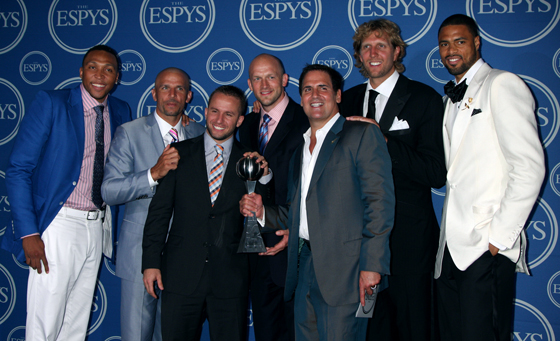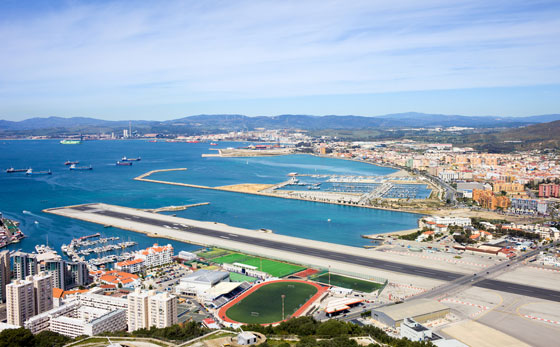 Mavericks owner Mark Cuban (third from right) with his players at ESPN’s ESPY Awards.
Mavericks owner Mark Cuban (third from right) with his players at ESPN’s ESPY Awards.
Each year, our December issue of Risk Management highlights the Year in Risk. Basically, we look back at the year that was through the lens of risk and offer a time line of its biggest events as they relate to the discipline. (Look for it in your mailbox or online in a few weeks.)
One of the trends I wrote about this year was how some of the internet/tech companies that the world has been buzzing about for years are starting to lose their shine. Facebook (with its disastrous IPO), Google (with its third-quarter earnings embarrassment) and Apple (with its iPhone map fiasco and fall stock drop) have all looked a little less rosy this year. After some high-profile gaffes, that are starting to seem more like any other major brands with major revenues and major detractors.
Now, it seems that Facebook also may have to begin dealing with an outspoken critic: Mark Cuban.
The boisterous billionaire owner of the NBA’s Dallas Mavericks and television network AXS TV wrote an op-ed chastising Facebook’s sposored post arrangement with companies and, really, its whole strategy. In his eyes, the company is getting away from what made it such a good network in the first place and is now force-feeding users content based upon its proprietary algorithm rather than what they want. Thus, given the diminishing returns he now sees on the time and money the Mavericks devote to Facebook, he is instead directing the team’s staff to prioritize other networks, like Twitter, Tumblr and Pinterest.
Cuban wrote the following on Business Insider today.
First, I’m not recommending to any of my companies that we leave Facebook. I am recommending that we de-emphasize pushing consumers or partners to like us on FB and focus on building up our followings across all existing social media platforms and to evaluate those that we feel can grow a material following. In the past we put FB first, twitter second. FB has been moved to the bottom of a longer list.
The crux of his dwindling interest in using Facebook to promote his brand is the company’s increasingly pervasive EdgeRank algorithm, which decides which items in a person’s time line are the most important and thus elevates them to the top. For a brand like the Mavs, which often posts the score of the team’s game as it is occurring, the result can be a non-chronological display of the breaking information they’re trying to provide those that “like” their page. Or worse, it means that fans might miss interesting nuggets of info altogether.
Essentially, in its attempts to become, as Cuban terms it, an “efficient information delivery source” via their algorithm, the company is making it harder for companies to get the benefits they signed up for — and often pay for with “sponsored posts” that purport to help reach a wider audience.
By trying to be an incredibly efficient information delivery source, they confine our ability to organically reach most of our followers to using Sponsored Posts. They also significantly increase our costs because if we create a post that doesn’t engage our followers to the level the algorithm expects it to, it can impact our ability to be seen in the future. Talk about pressure. Put up a post, but be sure that EdgeRank doesn’t think it sucks.
Then of course there is the money. As many have written before me, sponsored posts can get expensive. If you post many times a day, that can get incredibly expensive.
So why would brands who can’t afford the algorithmic presentation risk, or the financial cost, want to continue to drive their user interaction by investing in FB if there are alternatives?
Of course, all this critiques are basically just mumbo jumbo to most of us non-techgeeks. These are details that few people actually care about. With his closing comments, however, Cuban gets to what sound like a potentially larger problem — and one that, if a host of other executives feel similarly about, could cost Facebook a lot of cache from the companies it has been enticing to join in recent years. In short, with its strategic shift, it may have invited strategic risk.
I also think that FB is making a big mistake by trying to play games with their original mission of connecting the world. FB is a fascinating destination that is an amazing alternative to boredom which excels in its SIMPLICITY. One of the threats in any business is that you outsmart yourself. FB has to be careful of just that.
And in case you were wondering: I first became aware of Cuban’s essay from @BusinessInsider on Twitter.

